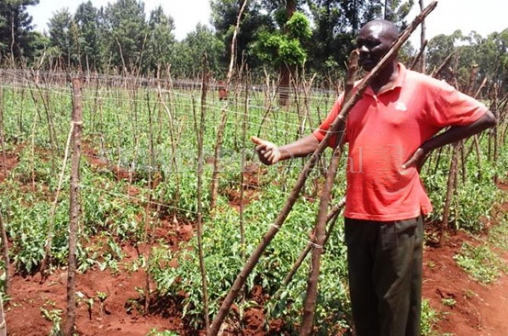×
The Standard e-Paper
Join Thousands Daily

THIKA: When he first planted tomatoes on his father’s farm as a lad in Standard Seven in 1979, John Kariuki Thiaka did not realise he was onto something. Thiaka says the 108 plants he grew began to pay off just four months later.
Thiaka never forgot this lesson. In 2013, he resigned from his teaching job at Kiamiciri Primary School to venture into tomato farming.